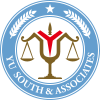 Fiscal Year of 2011’s H-1B Filing Date Begins on April 1, 2010, employers who wish to sponsor foreign national workers need to get ready to act soon!
Fiscal Year of 2011’s H-1B Filing Date Begins on April 1, 2010, employers who wish to sponsor foreign national workers need to get ready to act soon!
H-1B visa classification is the most frequently utilized visa category for most foreign nationals who work in the US in a professional capacity known as “specialty occupation” jobs. A bachelor’s degree and “prevailing wage” requirements are among the uniqueness of this special nonimmigrant petition for foreign temporary worker visa type. US government and the major corporations here are actually the largest beneficiaries of this visa class.
Each fiscal year, Congress authorizes an annual numeric cap of 65,000 total H-1B petitions that the USCIS can approve for the US employers to employ certain foreign nationals as an H-1B temporary worker. In addition to those 65,000 total numbers, there are 20,000 extra numbers reserved for foreign nationals who have earned an advanced degree (master’s degree or above) from a US institution of higher learning. However, once a foreign national is being granted to an H-1B status, the foreign national is no longer subjected to the cap within the statutory permitted period. This means that USCIS will continue to accept petitions for current H-1B workers, including petitions to extend the period of stay, change of the terms of employment, change employers, or to work concurrently in a second H-1B position.
In addition to this 65,000 global numeric quota, Congress also authorized limited special quota to certain selected countries that are not available to nationals from other areas. Congress further designated certain organizations or employers to be exempt from the numeric quota restriction so those employers can file non-cap subject H-1B petitions all year round. Most private businesses do not have such a privilege and therefore are subject to the annual cap limitation.
Quite a few times in the past few years, the annual quota was immediately exhausted on the same day it became available for filing purpose. As a result, all the untimely cases would have to wait until the next year’s quota became available again. The earliest time USCIS starts to accept such petitions utilizing the next fiscal year quota is April 1 with a starting date of employment on or after October 1. In other word, all new petitions for foreign workers subject to the cap utilizing the 2011 fiscal year quota must be for an employment to commence on or after October 1, 2010 and the earliest time a US employer can file such a petition is on or after April 1, 2010.
If you are an employer with H-1B needs or issues with government on H-1B audit or investigation, please contact Yu, South & Associates to discuss your strategies and alternative options, including immigration related policies and strategies to attract and retain your foreign national staff. For individuals and to learn more about H-1B and H-1B cap exemption or any questions regarding this article, please send your questions to Yu, South & Associates directly here to:
Yu, South & Associates, Where YOU Matter the Most.
